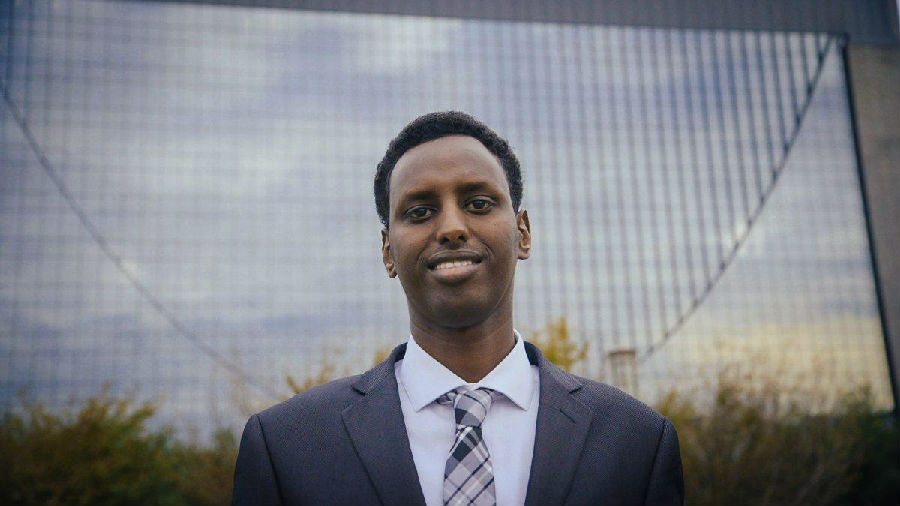JUDY WOODRUFF: Next, we turn to another installment of our weekly Brief But Spectacular series, where we ask people about their passions. Hamse Warfa was born in Somalia and moved with his family to the U.S. in 1994 after escaping Somalia's civil war and spending almost three years in a refugee camp in Kenya. He now resides in Minneapolis and is co-founder of BanQu, a software company on giving refugees an economic identity.

HAMSE WARFA, Co-Founder, BanQu: I am a family of 14. I spent first 10 years of my life in Mogadishu, Somalia, before the civil war. My family and I fled from the war, and came to refugee camp in Kenya. My mom and dad were successful entrepreneurs before the, before the civil war started, but when we came to the camps, we became nobodies. We had this registration number, and that was our identity. We didn't have any other identity. We didn't exist in other ways. We spent three-years-and-a-half in Dadaab refugee camp in Kenya before my family and I were resettled in the United States. We came with the impression that, once and for all, we are, finally came to regain freedom. The average stay in refugee camp is 17 years. When a refugee is either resettled or they repatriate back to their country of origin, all the 17 years they have spent in the camp, all the services they have received, all the loans they have received, the education they have attained, all of that are nonexistent, because there was no way to build up a transaction history for them. So they are starting life from scratch, and it is not fun to lose 17 years of your life. It is unacceptable that we have 2.5 billion people around the world, including the 68 million Americans, who are completely disconnected from the global economic ecosystem. They are completely un-banked. They don't have access to banking. They don't have means to access markets. My passion is ensuring that these systems that were meant to be exclusive to be inclusive of everyone. In the next 10 years, my goal is at least 100 million people is uplifted from poverty, and that they have a transaction history that they can monetize, that they can access markets, that they can access finances. We want to bring dignity through identity by making sure that everyone is entitled and owns their own data. We have to create dignity through identity. My name is Hamse Warfa, and this is my Brief But Spectacular take on creating economic identities for everyone.
JUDY WOODRUFF: And you can watch additional Brief But Spectacular episodes on our Web site, PBS.org/NewsHour/Brief.












